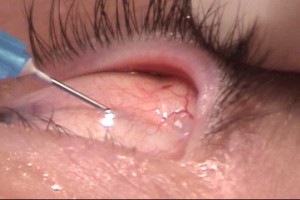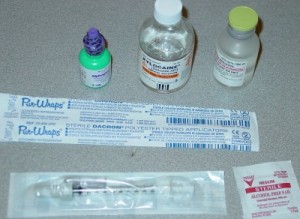Friendly Reminder that Utah Expiration Dates are Two Years
When I went to renew my Utah optometrist license, I was greeted with this pop up:
Since my photo is grainy, it says,
“Under Utah law a contact lens prescription expiration date shall be two years from the commencement date unless documented medical reasons require otherwise.”
Here is the excerpt from the Utah Code regarding “Contact lens prescription”:
58-16a-102. Definitions.
(3)
(b) A prescription may include:
(i) a limit on the quantity of lenses that may be ordered under the prescription if required for medical reasons documented in the patient’s files; and
(ii) the expiration date of the prescription, which shall be two years from the commencement date, unless documented medical reasons require otherwise.
I would say it is pretty standard practice to make youth Rx’s one year, but my advice to other Utah eye doctors would be to make sure you have a check box in your chart documenting how the youth’s Rx is still changing which requires yearly monitoring, history of eye infections and need to yearly monitor eye health, etc.
I am not exactly sure when this law came into effect, but I have known about it since 2006 after I moved to Utah. From intermittent observation of outside Rx’s brought in to my vision center or patients coming in for an exam, I would say about half of the area eye doctors know about this law. Either ignorance or they document every little thing as an excuse to yearly monitor contacts. I don’t want to slight The Vision Council’s campaign of “Check Yearly. See Clearly.” but the law is the law.
What would you say is sufficient medical reason to change an adult’s contact lens Rx to less than two years?
- Seasonal allergic conjunctivitis? What would you change before two years after recommending Pataday/Alaway, ClearCare, and daily disposable during the worst weeks?
- Contact lens-related dryness? What would you change before two years after recommending Oasys/Biofinty and ClearCare/Optifree PureMoist and Refresh Contacts?
- Mild corneal neovascularization? What would you change before two years after recommending a silicone-hydrogel, adhere to manufacturer replacement schedule, and no overnight wear?
I would be careful because if you get too knit-picky, your patients will go elsewhere for exams.
Tags: contacts, doctors, Government, law, optometrist, Organized Optometry, patients













